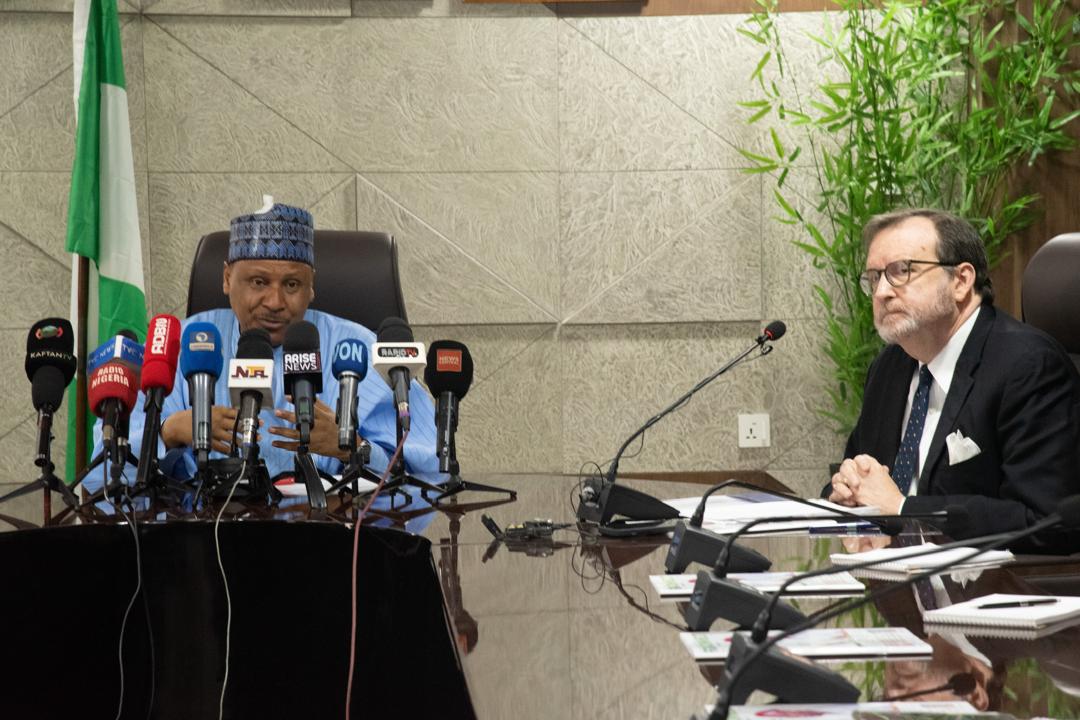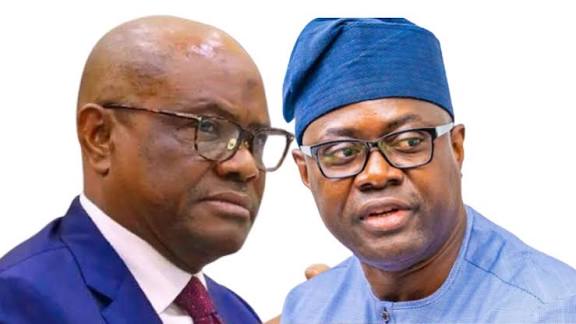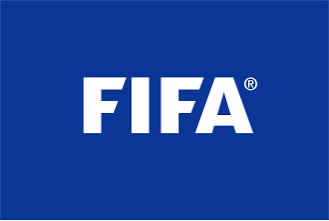
Ezekiel Awojide, Abuja
The Minister of Information and National Orientation, Mohammed Idris, has stated that the Federal Government is collaborating with the United States Embassy in Nigeria to educate the public about the new U.S. visa regulations, to ensure compliance by applicants during the visa application process.
The Minister, who made this known during a joint press conference with the United States Ambassador to Nigeria, Richard M. Mills Jr., in Abuja on Friday, stated that the sensitization was necessary as the United States remains one of the most frequently visited destinations for Nigerians.
He said for decades, Nigerians have been visiting the United States for various reasons, including tourism, business, education, and medical care, among others.
“Nigeria is globally recognised as a country whose citizens are active travelers, engaging with the world across business, education, tourism, and other vital sectors. The United States remains one of the most frequented destinations for Nigerians, reflecting the deep and long-standing ties between our two nations.
“Many Nigerians travel to the U.S. for study, work, medical care, family visits, tourism, and investment opportunities. This robust exchange continues to enrich both societies. The new developments announced by the U.S. Embassy regarding changes in its consular responsibilities and visa application procedures have been in the news recently.
“These changes, as explained by the U.S. Mission, are part of efforts to enhance service delivery, improve efficiency, and respond to evolving consular demands,” he said.
Idris appreciated the U.S. Government’s efforts to engage Nigerian citizens directly through the briefing and ensure that accurate, up-to-date information is made widely accessible.
He also underscored the mutual respect and partnership between Nigeria and the United States and the commitment of the Embassy to keeping Nigerian travelers well-informed
In his remarks, the US Ambassador to Nigeria, Richard M. Mills Jr, said compliance with visa laws and regulations by Nigerian citizens is a vital aspect in deepening the relationship between the US and Nigeria.
“Compliance with US visa laws is not just an obligation but the cornerstone of mutual trust and respect between the two countries,” said Ambassador Millis, adding, “As the Minister just indicated, he and I had useful discussion about US visa laws and how to message to the Nigerian people the importance of compliance with US visa laws.
“Let me be clear, the US values its strong relationship with Nigeria and the many kinds of connections that exist between our two countries. US visas play a vital role in keeping these ties going and strengthening, whether that’s enabling travels for education, for business, for tourism, for cultural exchange,” he said.
The Ambassador stressed that the US government considers it essential that visas are appropriately used by US laws and regulations.
“We, of course, welcome Nigerian visitors to the United States just as Nigeria welcomes Americans to this country. Both governments want visitors to respect our national laws and regulations,” he stated.
The US Envoy emphasized that misuse of a visa or the provision of inaccurate information when applying for a visa undermines the trust between the two countries.
“We encourage all applicants to provide truthful information and abide by the terms of their visas, as I know, a great majority of Nigerians do.
“By doing that, we are going to strengthen the bonds between our countries,” he said.
Ambassador Mills also hailed the Information Minister for championing freedom of expression in Nigeria, saying these are values that align with the US Policy.
He also commended the cooperation of Nigerian institutions, including the National Orientation Agency, Nigerian Immigration Service, Nigerian Customs Service, and the Presidency, in promoting public awareness on visa regulations, even as he encouraged Nigerians to access accurate information directly from the US Embassy’s consular portal, assuring prompt responses to any inquiries.









